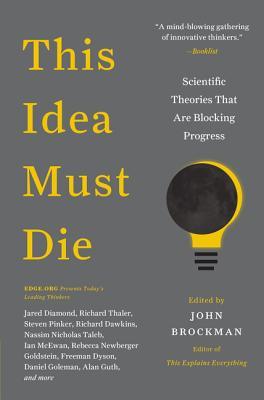Ian Bogost: "Science"
The rhetoric of science has consequences. Things that have no particular relation to scientific practice must increasingly frame their work in scientific terms to earn any attention or support. The sociology of Internet use suddenly transformed into “web science.” Long accepted practices of statistical analysis have become “data science.” Thanks to shifting educational and research funding priorities, anything that can’t claim that it is a member of a STEM (science, technology, engineering, and math) field will be left out in the cold. Unfortunately, the rhetoric of science offers the most tactical response to such new challenges. Unless humanists reframe their work as “literary science,” they risk getting marginalized, defunded and forgotten.
When you’re selling ideas, you have to sell the ideas that will sell. But in a secular age in which the abstraction of “science” risks replacing all other abstractions, a watered-down, bland, homogeneous version of science is all that will remain if the rhetoric of science is allowed to prosper.
Notes:
Folksonomies: science rhetoric
Taxonomies:
/science (0.654913)
/real estate/buying and selling homes (0.334941)
/religion and spirituality (0.120038)
Keywords:
research funding priorities (0.979829 (positive:0.343133)), Ian Bogost (0.851200 (positive:0.289312)), science (0.848953 (negative:-0.578814)), particular relation (0.743413 (positive:0.675545)), homogeneous version (0.721408 (neutral:0.000000)), statistical analysis (0.718168 (neutral:0.000000)), scientific practice (0.712956 (positive:0.675545)), scientific terms (0.711034 (positive:0.675545)), tactical response (0.708846 (negative:-0.657581)), web science. (0.700815 (neutral:0.000000)), new challenges (0.700732 (negative:-0.657581)), secular age (0.698375 (neutral:0.000000)), data science. (0.697974 (neutral:0.000000)), rhetoric (0.680340 (negative:-0.657581)), literary science (0.675551 (negative:-0.500047)), work (0.447963 (positive:0.185570)), ideas (0.425380 (neutral:0.000000)), Thanks (0.403041 (positive:0.343133)), consequences (0.398194 (neutral:0.000000)), abstractions (0.398032 (negative:-0.489139)), humanists (0.397261 (negative:-0.489975)), abstraction (0.391954 (neutral:0.000000)), attention (0.384097 (positive:0.675545)), claim (0.383959 (neutral:0.000000)), Things (0.377476 (positive:0.675545)), sociology (0.377048 (negative:-0.237822)), support (0.376488 (positive:0.675545)), risks (0.375738 (negative:-0.489139))
Entities:
Ian Bogost:Person (0.964984 (positive:0.289312))
Concepts:
Mathematics (0.979892): dbpedia | freebase | opencyc
Abstraction (0.698692): dbpedia | freebase
Scientific method (0.663847): dbpedia | freebase
Philosophy (0.590901): dbpedia | freebase | opencyc
Statistics (0.588342): dbpedia | freebase | opencyc
Sociology (0.582674): dbpedia | freebase | opencyc
Renaissance (0.580759): dbpedia | freebase | opencyc
Idea (0.565427): dbpedia | freebase | opencyc





